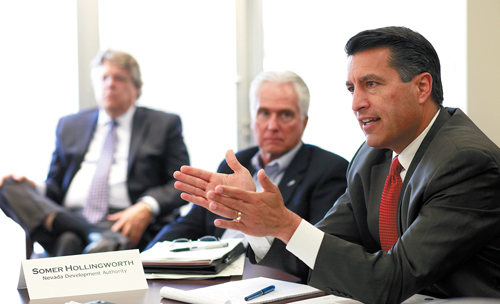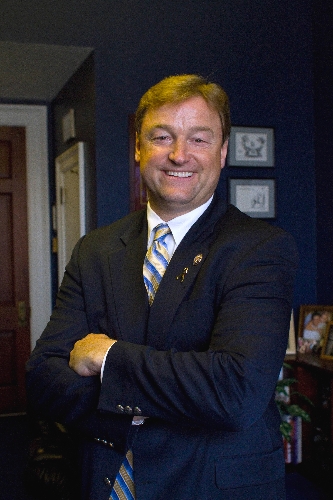POLITICAL EYE: Economic development spending lags in Nevada
Nevada politicians are fond of saying their top three issues are "jobs, jobs and jobs."
But when it comes to state spending on economic development, other states are leaving Nevada in the dust.
Though it was among the few areas in which spending increased in the 2011-13 state budget, Gov. Brian Sandoval is still looking at an economic development budget that is dwarfed by those other states.
"This is a difficult time to throw money into those activities when you have kids and senior citizens with profound needs," said Lt. Gov. Brian Krolicki, who, with Sandoval and other officials, serves on the state's Economic Development Commission.
Mike Skaggs, executive director for the commission, said annual state spending increased to $7 million in the new budget, compared with about $4.6 million in the previous budget.
That's in addition to a $10 million "catalyst fund" the state started to help businesses start or expand.
By comparison, Ohio, in what the USA Today called "the biggest intervention in a private economy" since the Great Depression, will spend $1.4 billion.
Texas, another big spender on economic development, spent more than $350 million in the 2010 fiscal year.
Still, there's no consensus that spending more tax money will result in more private sector jobs.
Michigan has dramatically cut economic development spending.
In recent years Michigan spent as much as $250 million on economic development and couldn't stop a continued economic decline, USA Today reported.
New Gov. Rick Snyder, however, is cutting spending dramatically, according to news reports, and will count on an overall cut in the corporate tax rate to lure business.
During a meeting last week of Nevada's Commission on Economic Development, Sandoval acknowledged Nevada isn't positioned to spend big bucks on economic development.
But he added that doesn't mean the state won't compete.
That's why he's pressing hard for a new analysis of Nevada's strengths and weaknesses as a destination that is expected to identify potential places where complementary industries can form "economic clusters."
The report is expected to be complete in the fall, and Sandoval wants to have a revamped economic development effort running full speed by the new year.
"We all want the same thing, which is a plan," Sandoval said. "We can't just be hoping these companies will move here."
-- Benjamin Spillman
HELLER HAS D.C.-AREA DIGS
When Dean Heller was a member of the U.S. House, he was among 50 or so lawmakers who slept in their offices. But that sort of thing just isn't done in the U.S. Senate.
Heller moved into an apartment in the close-in Virginia suburb of Rosslyn after he became a senator in May, his office confirmed today in answering perhaps the last remaining question surrounding Heller's transition from one side of Capitol Hill to the other. Heller was appointed to the Senate to succeed fellow Republican John Ensign, who had resigned.
While "sleeping in" was a fairly common practice in the House, there are no senators known to camp in their offices.
It's just not ... senatorial.
-- Steve Tetreault
Contact Benjamin Spillman at 702-477-3861 or bspillman@reviewjournal.com. Contact Stephens Washington Bureau Chief Steve Tetreault at stetreault@stephensmedia.com or 202-783-1760.
The Political Eye blog


















